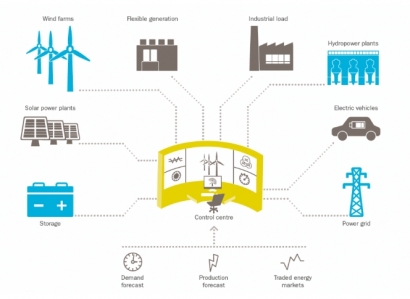
Duncan Dale, head of Statkraft’s markets business in the UK, said the company recognizes the importance of flexible power generation for the provision of secure energy supply, adding, "It is vital that any new generation capacity is highly efficient and ultra-flexible, like Statera’s. We have partnered with Statera because of their project development approach and relentless optimization of the project design and operations.”
Statera will provide one of the UK’s largest battery facilities to store renewable energy at times of excess production. Statera will also deliver high efficiency gas reciprocating engines to flexibly generate electricity at times of under-production or peak demand. The assets will complement Statkraft’s 3.8 GW UK renewable generation portfolio, contributing to a reduction in conventional, less flexible, fossil fuel generation and carbon emissions in the UK’s electricity system.
Statera, backed by global investment manager InfraRed Capital Partners, will continue to develop, build, own and operate its flexible gas generation and energy storage portfolio throughout the partnership. As new assets come online, they will be integrated into Statkraft’s virtual power plant and advanced trading platform. Statkraft will provide market optimization, trading and risk management services to the assets.
Discussing the partnership, Tom Vernon, Managing Director of Statera Energy, said, “We have partnered with Statkraft because of its industry-leading trading capabilities and innovative approach to the future energy market. Statkraft will optimize the increasing dependence that its renewable portfolio has on flexible generation and storage, to help balance the electricity system using Statera’s assets for the next 15 years.”
Statkraft, strives to be a leading route-market-services provider to ensure a secure, renewable and cost-efficient electricity system of the future. Flexible power generation will continue to form an essential part of enabling the viability of renewables in the coming decades, at the lowest cost to consumers.

